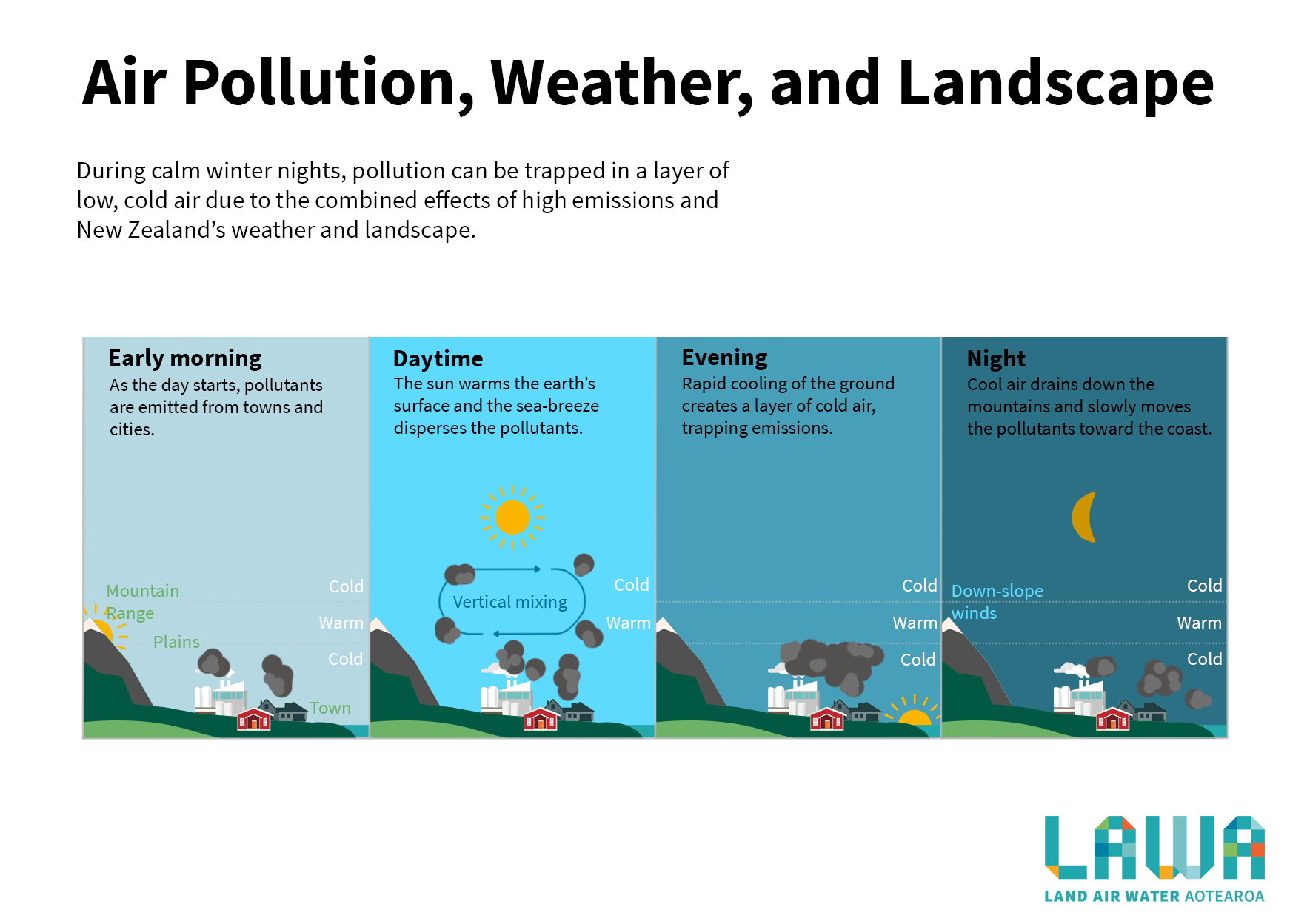-
-
Air quality science
-
-
-
-
-
-
-
-
-
-
-
-
-
Otago Regional Council measures particulate matter (PM10) concentrations in the air. PM10 are solid or liquid particles that are smaller than 10 micrometres in diameter. They can be easily inhaled and as such, can contribute to and cause respiratory and cardiovascular diseases. The most vulnerable people are young children, the elderly, pregnant women, and those with pre-existing conditions.

The weather has an influence on the dispersion of particles. Many of Otago’s high pollution events occur during cold and calm winter days and nights. Temperature inversions form when warm air traps cold air at ground level, and vertical mixing between the layers is inhibited. When pollution is emitted into the ground level layer, it is unable to disperse.

In Otago, the small airborne particles that cause air pollution often reach the highest levels during winter mornings and evenings. This is usually due to wood burning for home heating. But in some Otago towns there isn't a lot of air movement, meaning towns with poor ventilation have a lot of particulate matter staying in the air which poses health risks. For daily data, you can download the air quality datasets on LAWA or view the tables.
Disclaimer
Information displayed on this web site is provisional and has not been checked using the Council’s Quality Assurance procedures. The Otago Regional Council, Contact Energy, Trustpower, Environment Canterbury, Environment Southland and NIWA do not make any warranty, expressed or implied or assume legal liability or responsibility whatsoever for the accuracy or completeness of this information nor does it make any representation whatsoever that the information is fit for any particular purpose.

Reports and publications - air
The health of people in Otago depends on clean air. ORC is responsible for managing and reporting on Otago’s ambient (outdoor) air quality and carrying out long-term continuous monitoring. We share several reports that look at the air quality in our region.

Air plans and policies
The Regional Plan: Air for Otago (the Air Plan) assists us in managing Otago's air resource.

